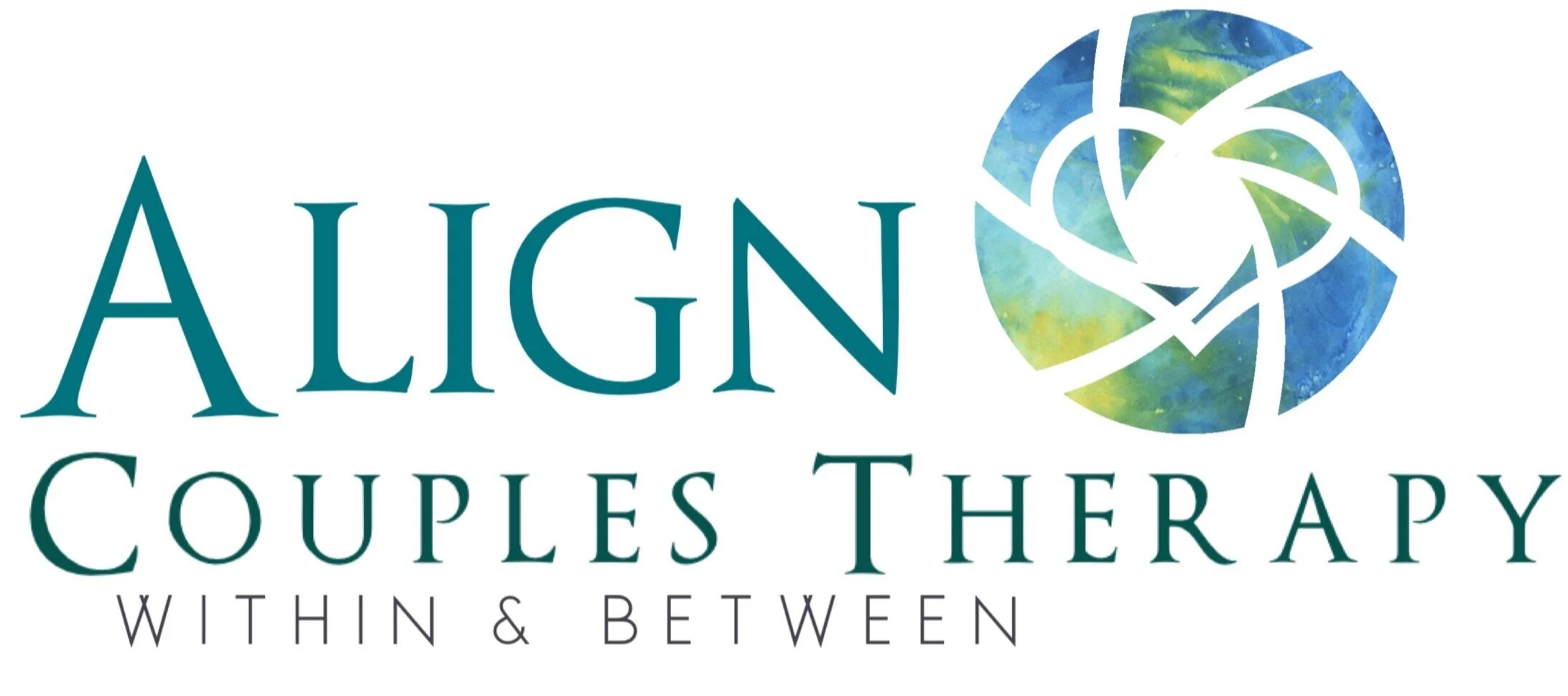The shelter in the storm: how to support each other when anxiety shows up
/Do you ever feel like there is a third wheel in your relationship? No, I’m not talking about another person. I’m talking about the unwanted guest: anxiety. Anxiety might block your ability to connect with and support others, dictate the activities you engage in, and may reinforce you feeling overwhelmed and stuck. This doesn't need to be the case; the therapy I provide during individual counseling or couples counseling at Align Couples Therapy may help manage anxiety and the accompanying painful feelings. The end result is a relationship that can be the shelter rather than the damage path of the storm.
Managing anxiety in relationships
Anxiety can create tension between people, even when they care deeply about one another. Next comes frustration and stress, followed close behind by disagreements and conflict. Couples counseling can provide assistance managing these disagreements, reducing feelings of anxiety and dissatisfaction. Partners can also work together to create a meaningful relationship, support one another, and resolve some of the concerns associated with anxiety listed below:
Feeling unable to say no
People-pleasing
Taking responsibility for others’ emotions
Discounting your own thoughts, opinions, and intuition because of what others think
Avoiding intimate relationships
Inability to make decisions
Believing that your happiness is dependent on others
Difficulty asking for what you want or need, or being made to feel guilty
Consistently being overly sensitive to criticism
Couples counseling for anxiety may also help the non-anxious partner understand their partner's struggles more clearly and respond more helpfully and compassionately. It is common for the supporting partner to misunderstand their partner’s anxiety. This causes difficulty communicating, trusting, and finding ways to offer support because they do not know what to do; so they do nothing. It is also incredibly tempting for the non-anxious partner to want to fix their partner or suggest ways to “snap out of it.”
Don’t:
Try to “fix” your partner or their feelings
Assume the worst or mindread
Dismiss or minimize their anxiety
Encourage maladaptive behaviors
Take things personally
Lose your temper when anxiety levels are high
Blame them for canceled plans or last-minute changes
Do:
Attend counseling with your partner
Offer encouragement without pushing
Empathize and validate emotions
Help your partner manage anxiety, not eliminate it
Provide affection
Celebrate small victories
Have individual interests and support systems
Our therapeutic work can also help the anxious partner communicate what they are feeling and what they need clearly and effectively. Anxiety may interfere with plans or cause a small situation to escalate, which could create tension in the relationship. We identify tools and resources to utilize when anxiety is at play and move forward in a way that enhances the relationship while honoring each person. Demystifying the anxiety spiral is a central focus. We work to create meaningful connections and identify and utilize extended support systems.
It is helpful to identify triggers for anxiety and explore how, as a couple, you can work together to overcome those triggers. We also explore family and social patterns that might be contributing to anxiety and ways to restructure those patterns. This supports the individual experiencing anxiety and also allows for the couple to create a more meaningful relationship. When anxiety is avoided, it tends to grow, so by addressing the things that contribute to anxiety, they become less problematic and are less likely to contribute to feelings of depression or disconnection with family members and friends.
True healing can happen when one is fully seen and heard in a compassionate atmosphere.









